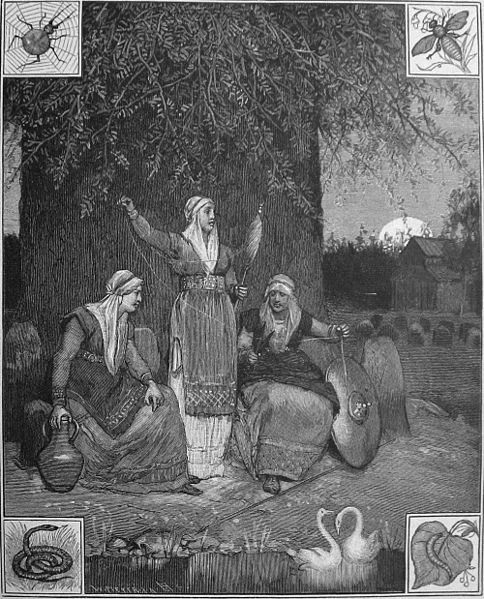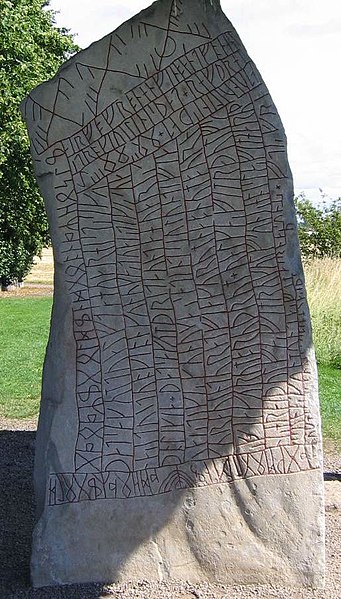The Norns are deities in Norse mythology responsible for shaping the course of human destinies.
The Norns spin the threads of fate at the foot of Yggdrasil, the tree of the world. Beneath them is the well Urðarbrunnr with the two swans that have engendered all the swans in the world.
The Norns (1889) by Johannes Gehrts.
Fresco of the Norns in Neues Museum, Berlin
Mímer and Balder Consulting the Norns (1821-1822) by H. E. Freund.
Norse, Nordic, or Scandinavian mythology, is the body of myths belonging to the North Germanic peoples, stemming from Old Norse religion and continuing after the Christianization of Scandinavia, and into the Nordic folklore of the modern period. The northernmost extension of Germanic mythology and stemming from Proto-Germanic folklore, Norse mythology consists of tales of various deities, beings, and heroes derived from numerous sources from both before and after the pagan period, including medieval manuscripts, archaeological representations, and folk tradition. The source texts mention numerous gods such as the thunder-god Thor, the raven-flanked god Odin, the goddess Freyja, and numerous other deities.
The Tjängvide image stone with illustrations from Norse mythology
The god Loki, son of Fárbauti and Laufey
The Rök runestone (Ög 136), located in Rök, Sweden, features a Younger Futhark runic inscription that makes various references to Norse mythology.
Title page of a late manuscript of the Prose Edda written by Snorri Sturluson (13th century), showing the Ancient Norse Gods Odin, Heimdallr, Sleipnir, and other figures from Norse mythology








